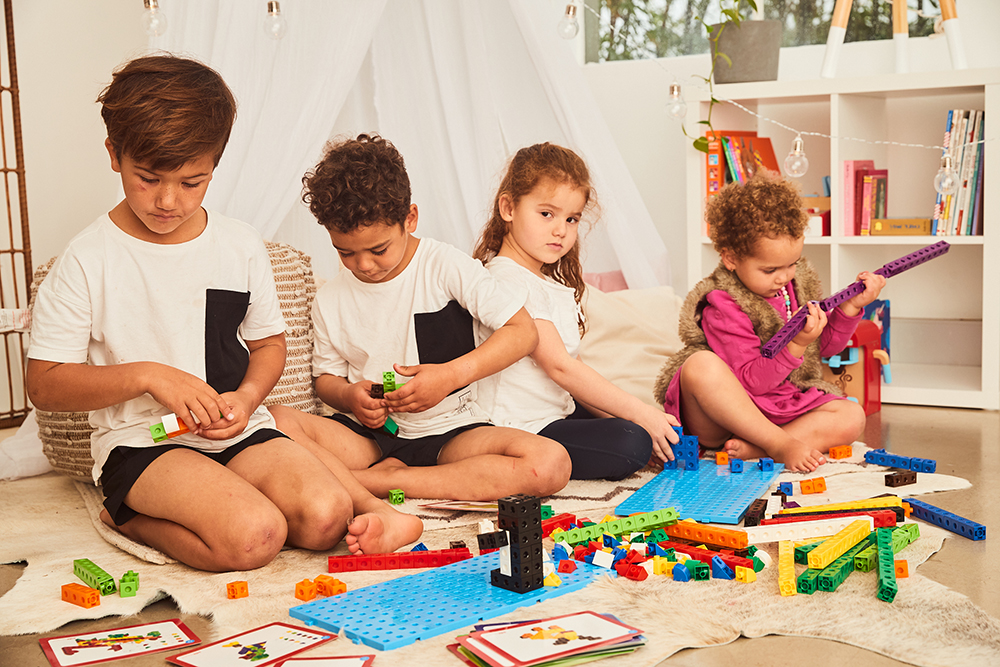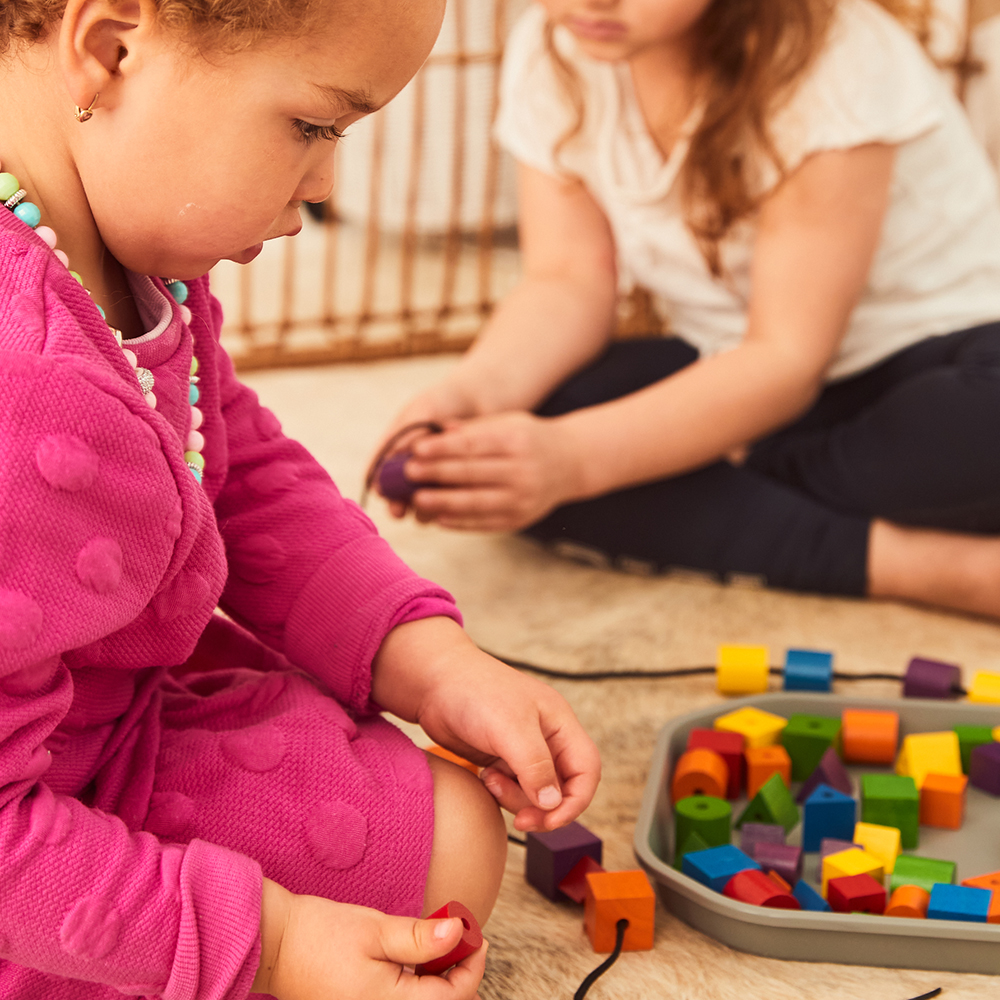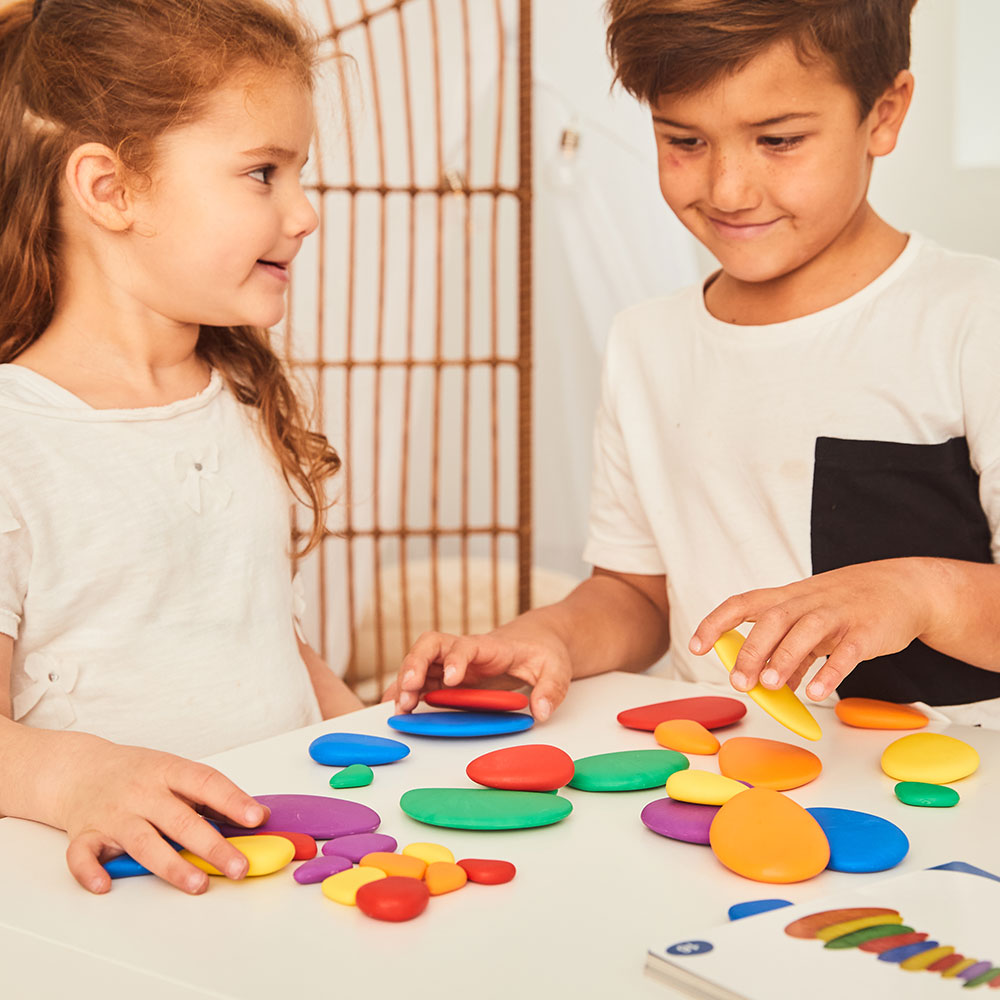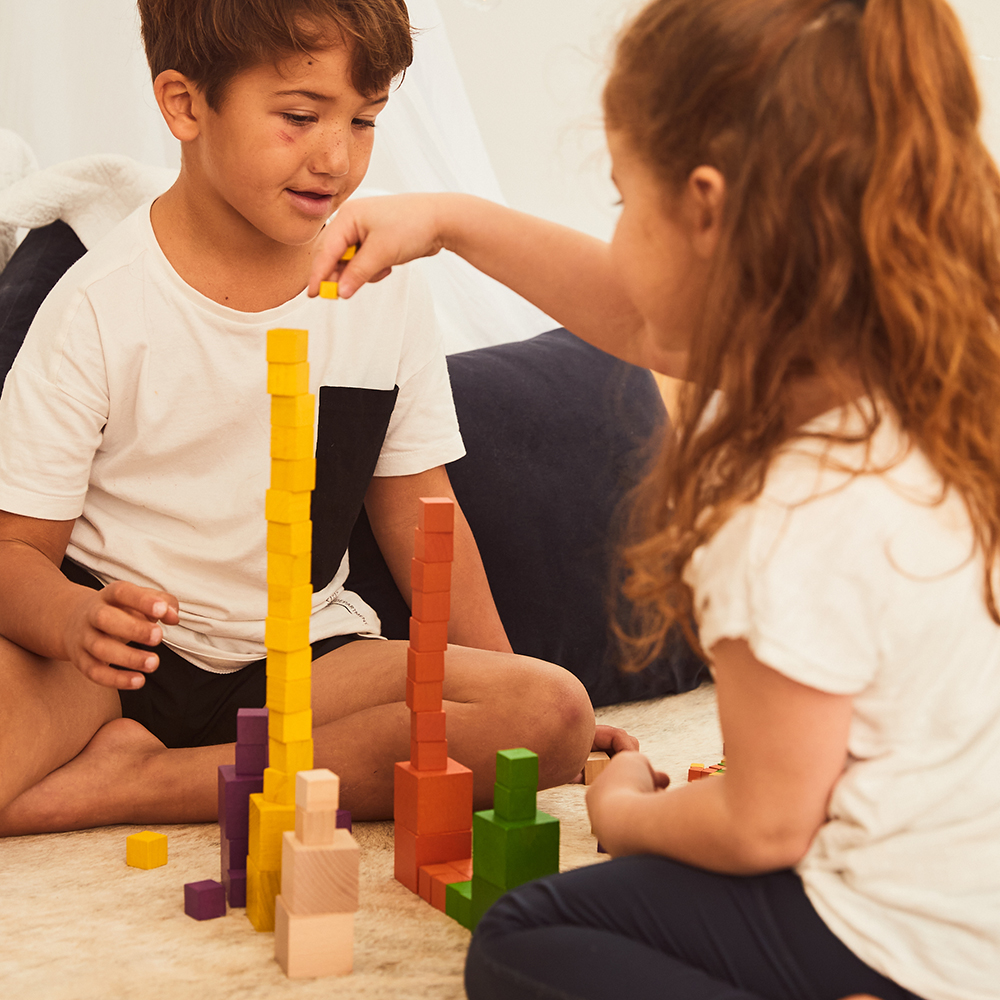Returning to School: How to Support Children’s Emotional Well-Being Through Play
2021-04-09/in Play Blog /
“Do not keep children to their studies by compulsion but by play.” (Plato)
The cogs are slowly turning again after a year of upheaval across the world. We are all hoping that life will start to return to something that feels more normal. Many exhausted parents are rejoicing their children’s return to school, knowing they have missed out on much more than just academic learning. But they are also anxious about how their child will cope with yet another change.
Of course, it’s been a widely different experience for all children, but emerging evidence suggests that the pandemic, and all its associated restrictions, are having a negative impact upon children’s emotional wellbeing[1].
We know that anxiety stifles curiosity. If we are going to help children transition back into school and all the learning opportunities that it offers, the first thing we need to focus upon is their social and emotional wellbeing. And what a better way to do this than through play?
[1] www.mentalhealth.org.uk “Impacts of lockdown on the mental health of children and young people
The Importance of Play
Our brains are wired to play and wired through play.
Play is not only an enjoyable part of childhood, but an important one. It is crucial for children’s development; physically, emotionally, cognitively, socially and creatively. It allows them to engage in the world in a way that feels safe, explore different roles, address fears and develop confidence.
Children who have parents who actively engage in play with them learn about sharing, problem solving and decision-making more quickly than those who don’t. Play also helps parents understand their child’s world and shows that they are interested in them, both important aspects of developing a secure attachment relationship.
And when children are experiencing adversity and change, play helps them process what has been going on and prepare them for what might happen next. As Erikson says “to ‘play out’ is the most natural self-healing method childhood affords”.
How to Support your Child Through Play
Child-Led Play
Have you ever sat and watched your child playing? The themes emerging so often relate to their daily lives. Their actions often work through what has happened, and is, happening. There may not be a clear purpose (in our minds at least!) or an obvious outcome, but child-led play provides the chance for children to express and make sense of what is going on. Child-led play doesn’t mean just leaving children to it – you can still join in – just focus on what your child is doing without taking the lead.
Attachment-Focused Play
Attachment-focused play is characterised by shared activities involving eye contact and mirroring. Try to ‘follow, lead, follow’ (Hughes[1]) whereby you let your child explore; show enjoyment in what they are doing, mirror it and build upon it for them (known as scaffolding). This helps children experience reciprocal relationships and learn that you can influence each other.
For children who haven’t left your side for some time, “object permanence” games (which show you going away but will come back) such as hide-and-seek can help them cope with increased separation anxiety that they may feel with the return to childcare or school.
[1] Hughes & Guerney-Smith (2020). The Little Book of Attachment: Theory to Practice in Child Mental Health with Dyadic Developmental Psychotherapy.
Facilitated Play
At times it is helpful for parents to more actively guide a child’s play. For example, through role-playing going back to school. This can help children mentally rehearse forthcoming changes, support them to understand feelings they may have around this and help them feel more prepared, and less anxious.
Get some props and use your calmest teacher’s voice. Remember to play out the things they are looking forward to as well as those that they are worried about. Make sure you put your child’s actions into words and talk about their feelings.
Be Playful
Where play is the act of doing, playfulness is a way of being. Playfulness is about trying to keep communication positive and light – sing, make up rhymes and do silly dances! When parents are playful children are more likely to feel that they are enjoyable to be around which feeds into a positive sense of who they are.
Focusing on playfulness as a core ingredient in your relationship will help you both feel more able to manage what the world is throwing at you. Anything that supports your child to feel more connected with you at home will go a long way in helping her feel more able to return to school, knowing there is a safe base to return to.
Help Children Unwind
Adapting to the demands of school may leave your child exhausted. Why not set up a den with them at home so they have a cosy, protected space to unwind after the challenges of the school day. As well as having blankets and cuddly toys, a box of sensory items, e.g., bubbles and playdough and a few stories may be useful.
How Can Teachers Help?
Unfortunately, with the pressure on teachers to help children “catch up” the importance of play may be forgotten in the classroom. A child who is anxious about change and with worries about his friendships is much less likely to engage in their times tables. So, a plea to teachers. Focus first on your student’s social and emotional learning. Expect that they may need more support in understanding and managing their feelings, as well as negotiating the complex dynamics of friendships.
Many children will struggle with sensory overload when being back in a busy classroom. Increasing sensory breaks, with access to outside play, can help children calm themselves and be in a better place to engage with learning.
We also know that children can regress when under increase pressure. Making play resources that might normally be considered for the younger age groups (such as a role-play corner in Key Stage 2) may also benefit children’s emotional wellbeing.
Parents and teachers have so much to do – packed lunches to make, lessons to plan, uniform to wash. But it’s imperative that we don’t forget to play, in school and at home. This will have a huge benefit to everyone’s emotional wellbeing, whatever age we are.
Wishing you all good luck with forthcoming transitions.
Posted by Dr Sarah Mundy, Consultant Clinical Psychologist and Author of Parenting Through Stories






 Edx Education
Edx Education Edx Education
Edx Education